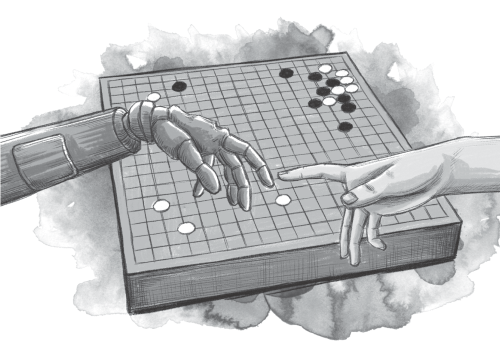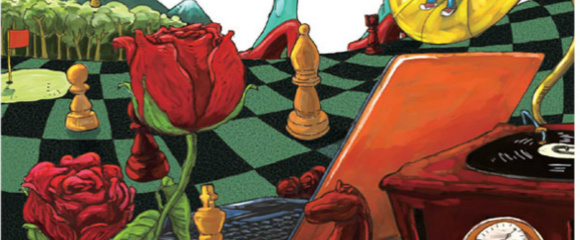Matching wits
Updated: 2016-03-21 08:35
By Raymond Zhou(China Daily)
|
|||||||||
 |
|
[Picture by Wang Xiaoying/ China Daily] |
While AlphaGo's win over one of the world's best Go players marked a milestone in artificial intelligence advances, humans have an edge in many of the simpler tasks, such as linguistic expression. What does a board game have in common with a pet?
It turns out that Go as a game sounds like the Chinese word for dog (gou) even though the Chinese equivalent is weiqi, or literally the encircling game. That's why for the past week many in China have been inundated by the news that a dog has trumped humans in smartness. It was about the only scintilla of fun in an otherwise grim scenario for the human species.
Most of my countrymen were probably not paying enough attention in 1997, when IBM computer Deep Blue beat world chess champion Garry Kasparov in a match. There was not as much coverage here, plus that style of chess, known as international chess, is not widely played in China, while Go is an ancient game invented in China and most popular in Asia.
So, AlphaGo's match with Lee Sedol, which was streamed live on all major online platforms with narration and commentary, came as a big blow to anyone who considers Go to be the ultimate barrier for artificial intelligence in climbing over that of the human.
Before the match started on March 9, Chinese forecasts fell neatly into two camps: Science majors overwhelmingly took the side of the machine while Go specialists believed in the ability of one of their best to come out ahead. Needless to say, the more you pinned your hope on Lee, the more disappointed you got.
I'm not a science major and know nothing about Go. All the sci-fi movies I have seen have conditioned me to accept this as something of a given. Actually they go far beyond defeating humans at board games.
From a layman's perspective, for anything that builds on the foundation of knowledge, humans do not have a chance vis-a-vis a computer, let alone a specially equipped and programmed one. The irony is, the more specific and in-depth the knowledge is, the easier it is for a machine to commit to memory and recall for use.
Games have rules and possibilities, and a machine can outsmart a human because it can tap its storehouse instantly. Sure, Go involves strategizing, which is far more complicated than simply identifying the best out of a million possibilities. But anything that can be streamlined and quantified into a set of rules will leave humans at a disadvantage.
AlphaGo's victory was a milestone in artificial intelligence research, but it's time to move beyond it. As Deep Blue's Murray Campbell said, it marked "the end of an era ... board games are more or less done".
Related Stories
Top Go player ponders AlphaGo matchup 2016-03-17 08:10
Google's AlphaGo defeats Go grandmaster in final match 2016-03-16 08:40
New chips will make AlphaGo's brain obsolete 2016-03-16 08:00
AlphaGo defeats Lee Sedol 4-1 in historic Go match 2016-03-15 17:36
Baidu O2O app for food delivery is using AI, just like AlphaGo 2016-03-15 17:03
Lee Sedol defeats AlphaGo for 1st time in 4th Go match 2016-03-13 19:15
Today's Top News
Paris attacks suspect wounded in Brussels shootout
China's latest GDP target is attainable: OECD Chief
What makes the middle class tick
One-stop app
EU to pitch migrant plan to Turkey
DPRK fires medium-range ballistic missile
Virgin Atlantic investigates abuse case
as story goes viral
Shanghai firm is latest Chinese investment in UK soccer business
Hot Topics
Lunar probe , China growth forecasts, Emission rules get tougher, China seen through 'colored lens', International board,
Editor's Picks

|

|

|

|

|

|






